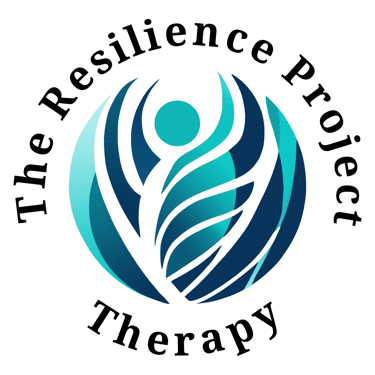Finding a Good Therapist: A Guide to Mental Well-being
Tips for Finding the Right Therapist for You
Christian Gray Hering, LCSW
11/17/20234 min read


As a therapist, I have witnessed firsthand the transformative power of therapy. When individuals find the right therapist, they can embark on a journey of self-discovery, healing, and personal growth. However, the process of finding a therapist can be daunting, especially for those who have never sought professional help before. In this blog post, I will provide you with a comprehensive guide on how to find a good therapist.
Therapy can be a life-changing experience, but it is important to find the right therapist to make the most of it. A good therapist will provide you with a safe and supportive space to explore your thoughts, feelings, and behaviors. They will also help you develop the skills and tools you need to cope with your challenges and live a more fulfilling life.
A study published in the Journal of Clinical Psychology found that the quality of the therapeutic relationship is one of the most important factors in predicting successful therapy outcomes. The study also found that clients who felt a good rapport with their therapists were more likely to experience symptom improvement and overall satisfaction with therapy.
How to Identify Your Needs and Goals
Before you start looking for a therapist, it is important to take some time to reflect on your needs and goals. What are you hoping to achieve in therapy? What are your specific concerns or issues? Once you have a better understanding of your needs, you can narrow down your search for a therapist who has the experience and expertise to help you.
Where to Find Therapists
There are many different ways to find a therapist. Here are a few suggestions:
Ask for recommendations from friends, family, or your doctor.
Search online directories such as PsychologyToday.com or GoodTherapy.org.
Contact your local community mental health center.
Call your insurance company to see if they have a list of in-network providers.
Reach out to organizations that provide specific types of therapy, such as trauma-informed therapy or LGBTQ+ therapy.
What to Look for in a Therapist
Once you have a list of potential therapists, it is important to do your research and choose someone who you feel comfortable with and who is a good fit for your needs. Here are some things to consider when looking for a therapist:
Credentials: Make sure the therapist is licensed and has the appropriate training and experience.
Specialization: Some therapists specialize in certain areas, such as anxiety, depression, or trauma. Choose a therapist who has experience working with your specific concerns.
Approach: There are many different styles of therapy. Choose a therapist whose approach you feel comfortable with.
Schedule and fees: Make sure the therapist's schedule and fees are compatible with your needs.
Interview: Schedule a consultation with the therapist for them to gain a general understanding of your needs and for you to assess their compatibility with your personality.
Tips for Having a Successful First Session
The first session with a therapist is an important opportunity to get to know each other and see if you are a good fit. Here are a few tips for having a successful first session:
Come prepared with a list of questions.
Be honest and open.
Don't be afraid to express your concerns.
Trust your gut feeling.
Be Willing to “Break-Up” with Your Therapist if Necessary
There is no one-size-fits-all answer to the question of how long you should test a therapist before choosing to move on. However, it is generally recommended that you give a therapist at least three to five sessions to see if they are a good fit for you. This will give you enough time to get to know them, build rapport, and see if their approach is working for you.
If you are still not sure after three to five sessions, you may want to consider scheduling a few more sessions to see if things improve. However, if you are consistently feeling uncomfortable or dissatisfied with your therapist, it is important to trust your instincts and find someone else.
Here are some factors to consider when deciding whether to move on from a therapist:
Do you feel comfortable and safe with the therapist?
Do you feel like the therapist understands you and your concerns?
Do you feel like you are making progress in therapy?
Do you trust the therapist's judgment?
If you can answer yes to all of these questions, then it is likely that you are a good fit for your therapist and you should continue to see them. However, if you are answering no to any of these questions, then it may be time to consider finding a new therapist.
Conclusion
Finding a good therapist can be a challenging but rewarding process. By following the tips in this blog post, you can increase your chances of finding a therapist who can help you achieve your goals and live a happier, healthier life.
Additional Resources
American Psychological Association: https://www.apa.org/topics/therapy
National Alliance on Mental Illness: https://www.nami.org/
Sources:
American Psychological Association. (2022, January 25). The importance of the therapeutic relationship. https://www.apa.org/monitor/2019/11/ce-corner-relationships
Norcross, J. C., & Wampold, B. E. (2011). Psychotherapy outcomes research: Meta-analysis and psychotherapy integration. In J. C. Norcross, G. R. VandenBos, & B. E. Wampold (Eds.), Handbook of psychotherapy (3rd ed., pp. 109-135). American Psychological Association
The Resilience Project Therapy
Mailing
P.O. Box 832182
Richardson, TX 75083
Contacts








